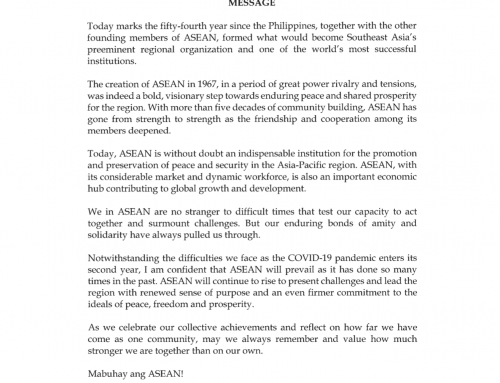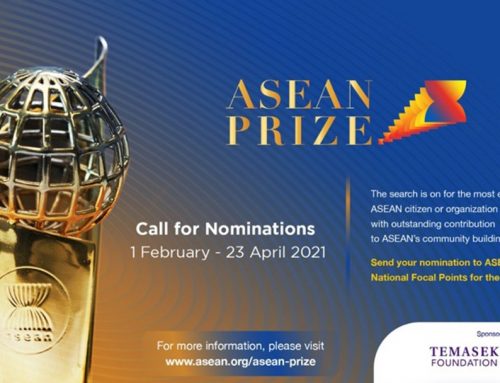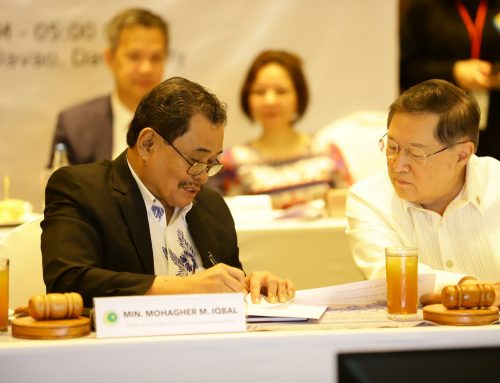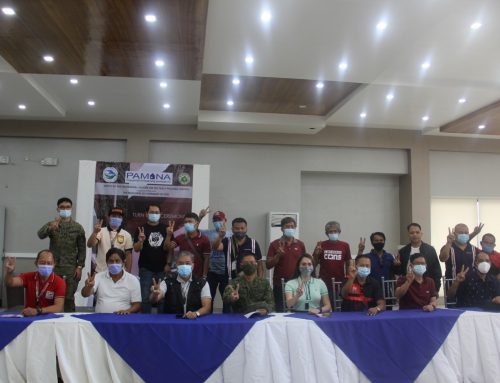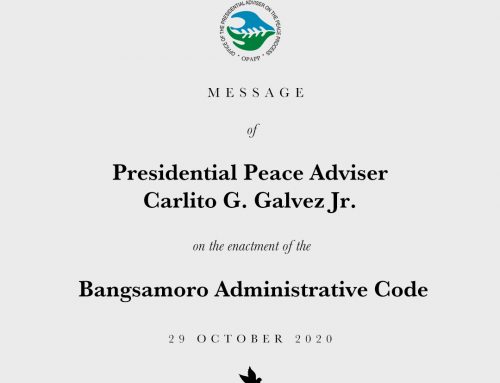Today’s youth belonging to the millennial generation – sometimes called Generation ‘Me’ – are deemed accustomed to an ‘instant gratification’ lifestyle others quickly dismiss as misplaced entitlement. Bangsamoro leader Datu Beds Kali proves just how wrong this judgment through his diligent advocacy towards peace with fellow youth leaders.
Kali has lived all of his nineteen years in Cotabato City, a place that’s often the setting for a socio-political landscape marred by blood, conflict, and social and economic injustices. However, together with other Bangsamoro millenials, Kali has dedicated his life to re-setting the course of this narrative into one rooted on a culture of peace, justice and nourishment of diversity.
“I have lived in an area in Mindanao that is among the most affected by war and conflict. We have witnessed firsthand violence and the unfairness of the world, in this corner alone. When there is conflict, we see our lives being flashed on the television screen, as if people here didn’t get hurt or didn’t personally get affected by those conflicts, those catastrophes,” said Kali, recounting his personal experience during a recent flare up between government forces and armed lawless elements.
“They call us ‘the future of tomorrow’, but how can that be, if we are prevented from attending school because there are no more classrooms? And the few ones left are re-purposed as evacuation centers? Our mothers worry day and night, praying for the safety of their husbands and children. It is sad, but ‘round here, prayers don’t always get answered.”
The horrors of armed-conflict and the additional layer of injustice brought about by misrepresentation and inaccurate reports in the media made Kali and other Moro youth leaders realize that the ill effects of today’s armed conflicts will continue to reverberate until the next Bangsamoro generation.
“I have witnessed how my people have struggled for peace. Amidst cries, shouts, and pleads to give peace a chance, I have seen my people struggle. We are all victims of violence and negative stereotypes; and these things will continue if we do not rectify prevailing social and historical injustices,” said Kali.
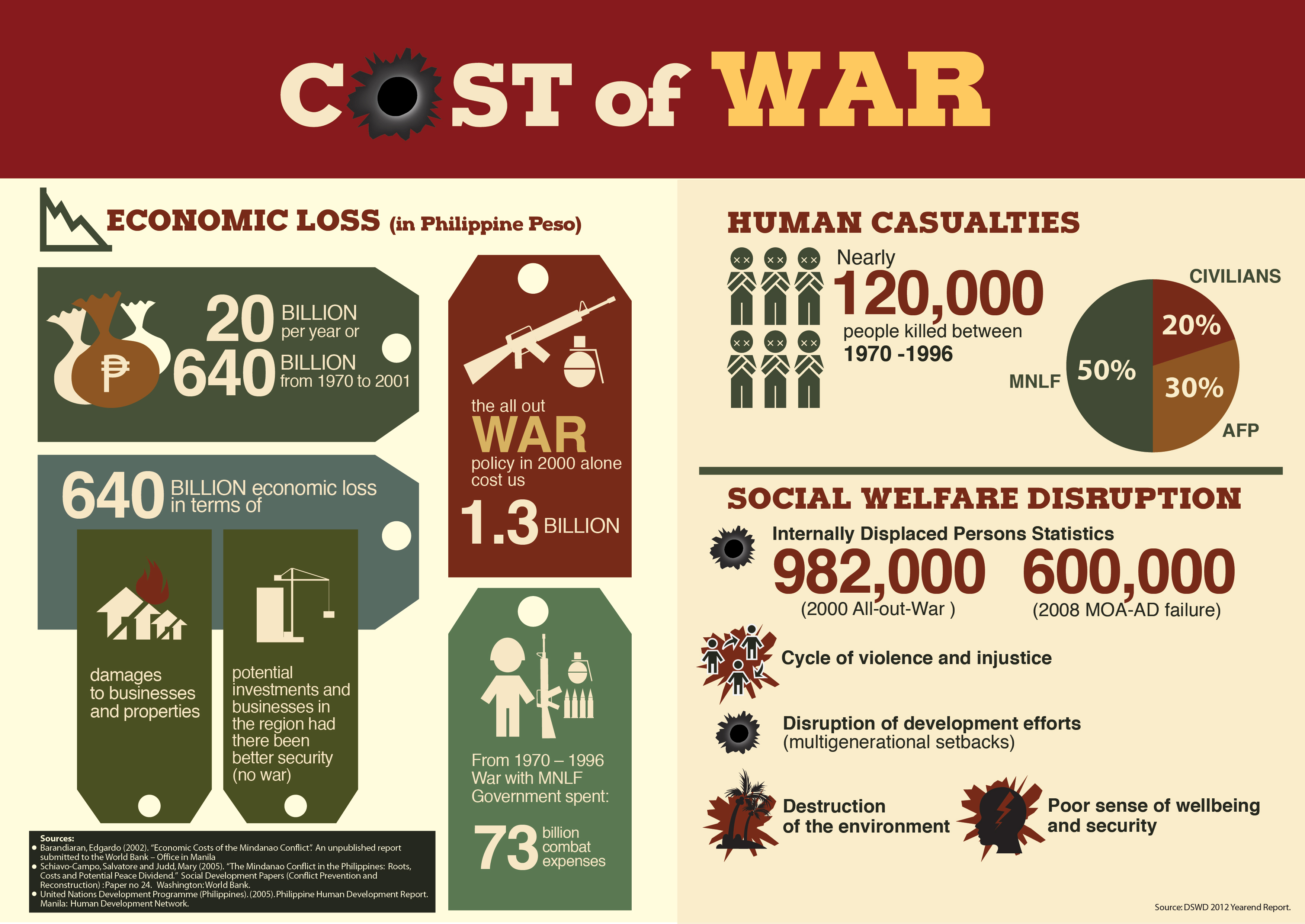
A closer look at the Bangsamoro youth
A recent Youth Development Index (YDI) report by the National Youth Commission (NYC) noted that youth participation in the current Autonomous Region in Muslim Mindanao (ARMM) is relatively low compared to other regions. This dismal data prevails, despite the fact that the youth comprise 25 percent or 6.8 million of the total population of Mindanao.
Results of the said study show that the ARMM scored 0.14 overall; the poorest among all regions and is indicative of major obstacles to youth development in the area. A breakdown of that score shows that the region received poor grades, throughout: an alarming 0.185 in education; 0.039 in employment; 0.162 in health; and 0.14 in participation.
Moreover, in the 2013 Functional Literacy, Education, and Mass Media Survey (FLEMMS) released by the Philippine Statistics Authority (PSA), it was found that the ARMM has the highest number of out-of-school children and youth among all regions in the country, pegged at 14.4 percent.
The said survey also showed that the Muslim Mindanao region had the lowest functional literacy rate of 72.1 percent, the primary reasons being, “26 percent of those who dropped out left their classrooms to look for jobs; 17.7 percent to marry, and 16.5 percent lost interest in pursuing their basic education.”
Meanwhile, a 2016 report by the United Nations Security Council indicated that “sporadic low-intensity clashes continue to affect children, predominantly in Mindanao, despite limited large-scale armed engagements in the past year.” The report also mentioned that children are “significantly affected by violent extremism in the past years” and that “they are often targeted by different terror acts to cause more casualties and fear among the communities”.
The report was released pursuant to Security Council resolution 2225 (2015), highlighting recent global trends regarding the impact of armed conflict on children as well as grave violations committed against children in 2015.
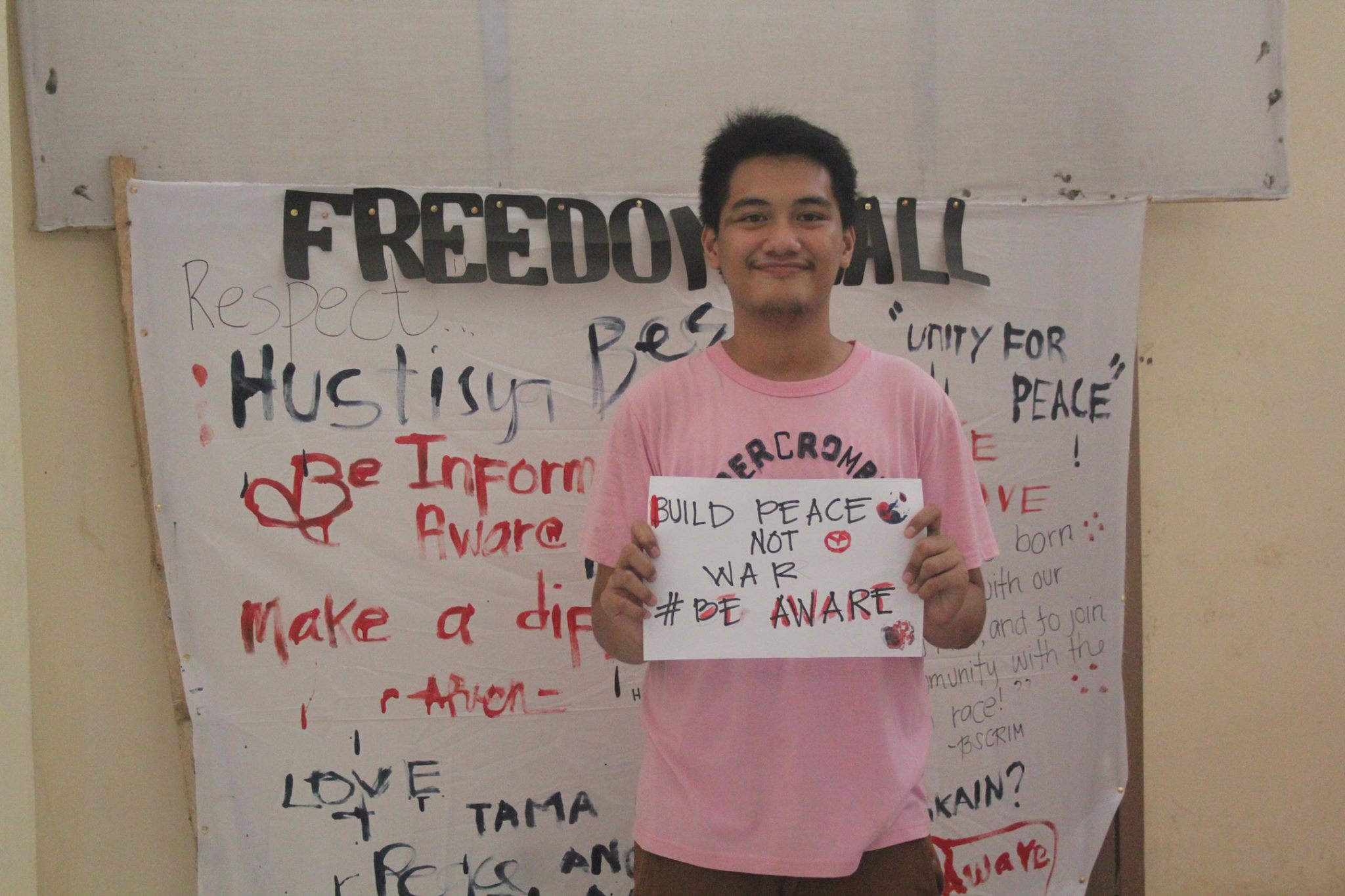
Institutional support to the youth
Different non-government organizations and civil society leaders have also undertaken concrete steps towards assisting the Bangsamoro youth to become leaders and primary peace stakeholders.
A couple of months ago, the Ayala Foundation, Inc. (AFI) and the ARMM government agreed to implement a youth program in 10 barangays in Basilan to be supported by the province’s local government units. The said program is aimed at empowering Basilan’s youth sector by training students and out-of-school beneficiaries on formulation and management of community-driven projects, especially those that can contribute to the Mindanao peace process.
The same foundation, in partnership with the Ayala Foundation, the Office of the Regional Governor – ARMM, and the Eisenhower Fellows Association of the Philippines, also launched the Bangsamoro Young Leaders Program – Leadership Communities (BYLP – LeadCom) that seeks to utilize the potentials of the Bangsamoro youth as catalysts of positive change in their respective communities. Thirty-five (35) youth leaders from the provinces of Sulu, Tawi-Tawi, Basilan, Lanao del Sur, and Maguindanao have been selected for the program’s initial phase.
Also, last July, around 50 Mindanawan youth from various parts of the region and different sectors have been convened for the first Mindanao Youth Peace Congress (MYPC) held at the Ateneo de Davao University. Initiated by the KaPeace Bisig Organization, the three-day activity encouraged its youth participants to identify issues and draft resolutions on factors affecting peace, such as education, health, environment, employment, and youth participation. It was not only the youth who learned from the endeavor; local government leaders benefited as well, since they can choose to adopt the draft proposals and recommendations.
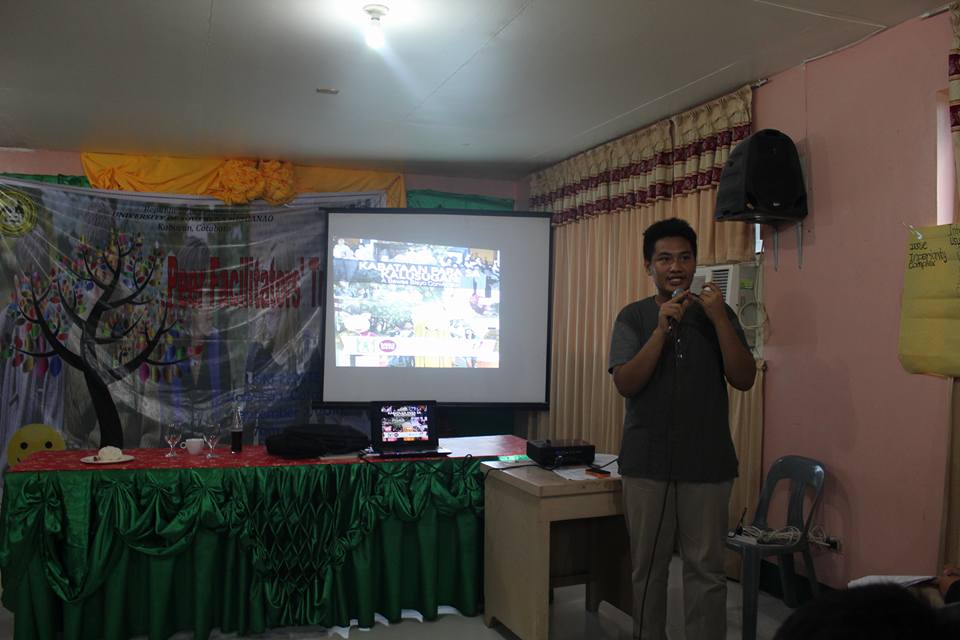
Millennials rising for peace
Kali is currently taking up an undergraduate degree in Development Communication at the University of Southern Mindanao (USM). He has served as a regional representative for the National Youth for Sin Tax; the USM chapter president of civil society organization MYPEACE, Inc. and founder of upstart organization Freethinkers Philippines.
For Kali, the youth plays a vital role in peacebuilding especially in educating the people on Moro history as well as on the culture and origin of the Bangsamoro armed struggle. “Millennials can do many things to contribute to peacebuilding. We have the time, ideas and skills to strategize and put into motion concepts that will eventually strengthen our advocacy for peace. Our wide array of specializations can also be instrumental in making peace happen.”
“Imagine all of our combined skills and crafts devoted to peacebuilding. I think nothing is impossible with regard alleviating, or better yet eradicating, the suffering brought about by armed conflicts.”
Currently, Kali has been organizing interfaith dialogues and joining peace conventions to know more about the ways the youth can contribute in advocating for peace. “With the skills and ideas we have, we can easily initiate and ignite things up which will strengthen our peace advocacy.”
“We can also encourage young people to involve themselves with this movement as the awareness on national issues among the millennials is not that strong. We can start with our schools — we can organize dialogues, brainstorming sessions, and discussions; we can convene student leaders and partner with other institutions to discuss narratives dealing on peace,” Kali said.
The young Moro leader also cited using social media as an avenue to reach more people and raise awareness on peace. “How good would it be if we spend a little more time for peace on social media? I think that would not be asking too much since we open our social media accounts almost every day anyway. We can do many things online to contribute to peacebuilding.”
“We have everything in this world: physical strength, ideas, time and more,” Kali pointed out. “We are indispensable and have an essential role in peace and nation-building. I know change does not happen magically, but through our united efforts, we can make it happen. We can make a difference,” Kali said. ###


